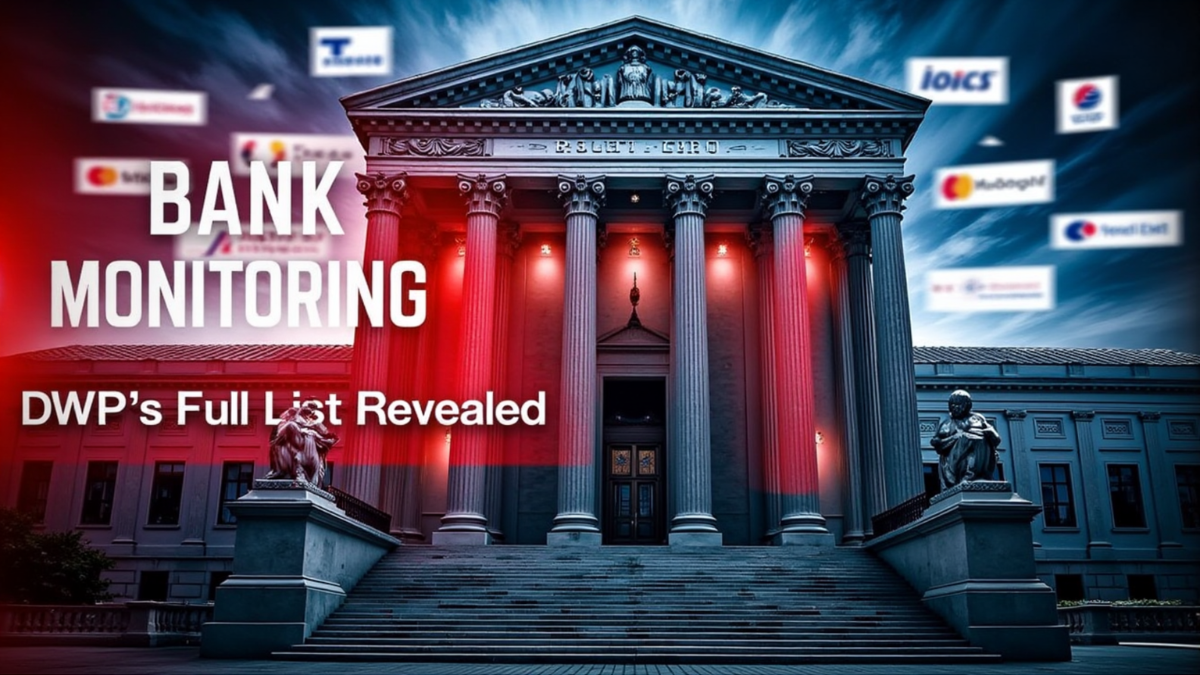The Department for Work and Pensions (DWP) has been given new powers that will allow it to check accounts held at 15 major UK banks.
The move is part of the Labour government’s “Plan for Change” scheme aimed at fighting fraud, reducing errors in the welfare system and getting taxpayers’ money back.
Purpose of the new powers

The UK taxpayer leafs £10billion a year to fraud and errors. Around £35 billion has been misspent during the year following the pandemic to people who were not entitled to collect it.
The DWP’s new powers should save around 1.5 billion over the next five years while also guaranteeing that the right assistance is appropriately and promptly granted to those deserving it.
NEW RIGHTS AND BANK LIST
The DWP now has the power to check accounts at 15 major banks, where 97% of benefits are paid. These banks are:
- Bank of Scotland
- Barclays
- Halifax
- HSBC
- Lloyds Bank
- Metro Bank
- Monzo Bank Ltd
- NatWest
- Nationwide
- Santander
- Starling
- Co-op
- RBS
- TSB
- Yorkshire Bank
The move is backed by the Data Protection and Digital Information Bill, and could be extended to other banks if necessary.
Fighting fraud
Fraud and mistakes in the social security system are a big part of the welfare bill. Cabinet Office minister Georgia Gould said:
“These new powers will give us the tools to fight fraud wherever it occurs, and get the money back from those who steal taxpayers’ money. We’re changing this so that fraudsters have nowhere to hide.”
The DWP has made clear that these powers are not meant to criminalise “legitimate beneficiaries”. Many people hold savings above the limit for legitimate reasons, such as injury compensation.
Overpayments are often caused by “mistakes made by genuine beneficiaries”, and the department has ensured that banks will not deduct money from a person’s account based solely on this data.
Collaboration with banks

The Government has worked with UK Finance and listed banks to create a “data sharing framework”. This support ensures that the process is transparent and compliant with data protection laws.
The DWP explained that these measures are aimed at catching and preventing fraud, while ensuring genuine beneficiaries are not unnecessarily targeted. Where overpayments are identified, the department will recover these in a proactive manner, without penalising well-meaning individuals.
Balanced approach
While tough action against fraud is essential, the DWP also aims to ensure legitimate beneficiaries are fully supported. Those who have made mistakes in their applications or have unauthorised savings will not be penalised without reason.
The “Plan for Change” scheme is a vital step forward to rectify fraud and inefficiencies in the welfare system so that taxpayers’ money is used more effectively and those who genuinely deserve help receive it.
FAQs
How will DWP’s monitoring affect my bank account?
DWP can access information from banks to monitor benefit-related transactions, ensuring compliance with benefit eligibility and payment rules.
What happens if DWP notices suspicious activity in my account?
If DWP detects any irregularities or suspicious activity, they may request further information or stop your benefit payments.
Will DWP monitor all my transactions?
DWP will focus on monitoring transactions related to benefits but may also flag transactions that raise concerns or appear inconsistent.













